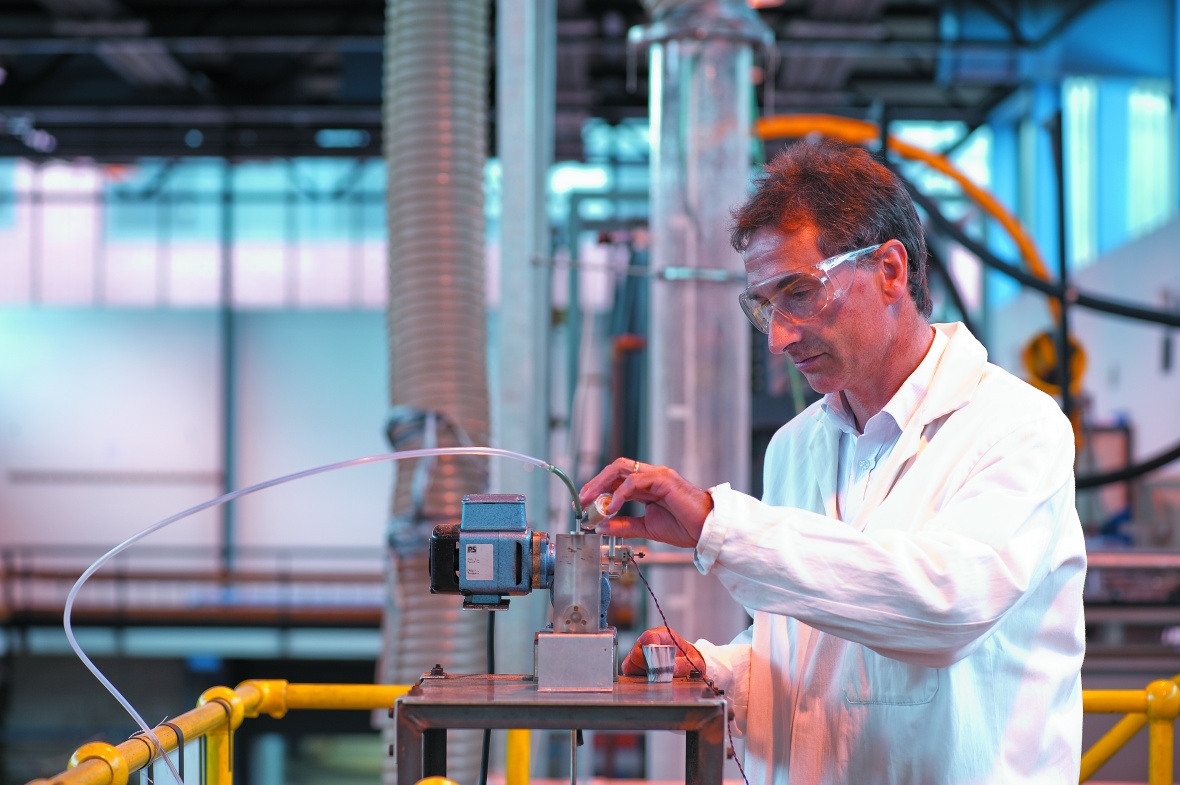The University of Nottingham is leading an international consortium aiming to accelerate the development of carbon capture and storage.
It's one of several projects that have received a share of £5 million grant funding from the Department for Business, Energy and Industrial Strategy.
Carbon capture and storage (CCS) is recognised to be one of the most effective measures towards the European Union's commitment to reach climate neutrality by 2050 and mitigate against global warming, staying within 1.5 degrees centigrade of pre-industrial levels during the remainder of the 21st century.
The experts are setting out to develop a cheaper alternative to the current process of amine scrubbing – the most mature technology that separates CO2 from natural gas, however the process is expensive, requiring a high level of energy and water consumption, and can cause environmental issues.
Professor Colin Snape, study lead, said: "Carbon Capture and Storage is key to achieving the UK's ambitious target of eliminating greenhouse gas emissions by 2050. It's therefore extremely important to accelerate the pace of developing alternatives to the current technologies on offer."

This study will enable us to extensively investigate an alternative that is showing considerable promise, silica-polyethylenimine (PEI), based on Nottingham's international reputation for developing solid adsorbents to capture CO2.
Professor Snape added: ""PEI is a polymer that avoids environmental issues associated with the basic liquids, used in amine scrubbing and requires less energy to release the CO2 after capture to enable subsequent pipeline transport and storage."
What is carbon capture and storage (CCS)?
CCS is the technology used to prevent and reduce the amount of CO2 in the atmosphere as an attempt to mitigate global warming. Some of the largest sources of CO2 includes coal and natural gas power plants and industrial processes (such as iron and steel and cement plants).
CCS involves three main components: capture, transport and storage. Once CO2 has been captured, i.e. separated from other gases being emitted, it is transported to a final storage location (usually through a pipeline). In the UK, the captured CO2 will be injected into either depleted oil and gas reservoirs or deep saline aquifers.
Amine scrubbing is the most mature technology that separates CO2 from natural gas however the process is expensive, requires a high level of energy and it can cause environmental issues.
The academics have identified a basic polymer, polyethylenimine (PEI) supported on silica, as a strong potential alternative in both post-combustion capture as well as in direct air capture. CO2, being weakly acidic reacts with PEI and the reaction (capturing the carbon) proceeds extremely fast. Over the two-year project, the academics will seek to demonstrate the efficiency and lower cost of the process. Its entire life cycle will also be analysed in order to provide a direct comparison to the processes already in use.
Project ABSALT: Accelerating Basic Solid Adsorbent Looping Technology
The university's Faculty of Engineering is leading the 'Accelerating Carbon Capture and Storage Technologies 3' project ABSALT: Accelerating Basic Solid Adsorbent Looping Technology. The project team aims to demonstrate that basic silica-polyethylenimine (PEI) in solids adsorption looping technology (SALT) can achieve low capture costs.
The consortium of international partners is made up of: PQ Corporation, UK; BASF, Germany; CEMEX, Switzerland; Ulster University, UK; University of Bologna, Italy; and CPERI-CERTH, Greece.
The project partners all play a vital role in the study:
- PQ Corporation and BASF are global manufacturers of silicas and PEI, respectively and with the University of Nottingham will use their materials expertise to optimise the composition of silica-PEI.
- The University of Ulster, CERTH and CEMEX have extensive experience in techno-economic analysis (TEA) and life cycle assessment (LCA).
- The involvement of CEMEX enables the team to address in detail the application of SALT to cement plants.
- The University of Bologna, CERTH and the University of Nottingham have extensive expertise in pyrolysis for recycling the silica and converting the spent PEI to potentially valuable chemicals.






